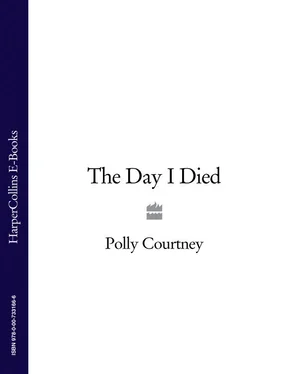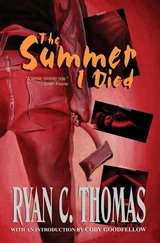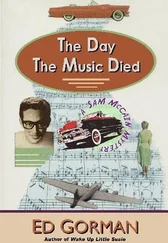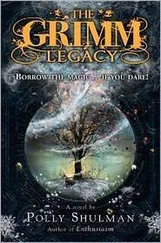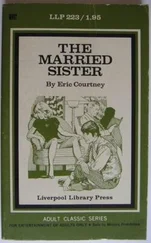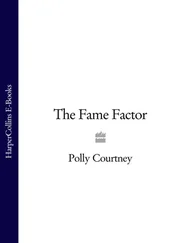1 ...7 8 9 11 12 13 ...20 She glanced at the newspaper and was perplexed to read ‘GIRL RESCUED BY INFLATABLE LOBSTER’. The woman had turned the page. Jo stirred her drink. Perhaps she’d slip into the shop and grab a paper when Mrs Phillips wasn’t around, or pretend to be looking for something else. Or maybe she should actually spend eighty pence or whatever and buy a newspaper, instead of sneaking around stealing things from people who were trying to help her. Jo sighed. She didn’t want to be like this. She wanted to be honest and kind, to put others first. But it was hard to put others first when…well, when her own survival was at stake. She had to think about herself, to stay on her toes–that was the reason for all this deceit. Or at least, she hoped it was.
Surreptitiously, she pulled out the notebook from her makeshift handbag and jotted a couple of things down under the heading ‘Bomb details’. She flicked back a couple of pages and stared at her messy scrawls from the other day. Then the typing stopped and she could feel the man’s eyes boring into her again through his thick-rimmed glasses. She shut the book.
‘Still using pen and paper, eh?’ He glanced proudly at his silver laptop and for a dreadful moment, Jo thought he might try to show her what he was working on. ‘I’ve practically forgotten how to write!’
Jo grunted politely and took a long swig. A vodka would have slipped down more easily, she thought. But that was the problem. She didn’t like the fact that alcohol had such a minor effect on her, that she was conditioned to use it. She hated that her body craved the stuff, that it functioned better with it than without it.
She looked out at the bustling high street below. Across the road, a middle-aged woman was standing, her handbag tucked under one arm and a giant box-shaped present on the ground beside her, all shiny red paper and curly ribbons. Anxiously, the woman looked left and then right, then checked her watch. Jo scanned the street, wondering which person or people, of the hundreds she could see from her elevated viewpoint, the woman was waiting for.
Like a character in some elaborate cuckoo clock, the woman went through her routine again. Look left, look right, check watch. Wait. Jo could see the anxiety on her face. She scanned the crowds again, then turned her attention back to the woman. Look left, look right, check watch. Wait.
Jo felt sorry for her; someone was clearly keeping her waiting, making her worry. But it wasn’t pity that she was feeling, five minutes later when the woman was still standing there, her head scanning the crowds even more frantically. It was shame.
Jo was making someone worry. Jo–or whatever her name was–had let herself become ‘missing, feared dead’, and there were people–or at least she guessed there were people–who were worrying about her, waiting, hoping.
Eventually, the woman’s stony face melted into a smile and even through the double-glazing Jo could hear a muffled cry as the two women threw their arms around one another. It was her daughter, thought Jo, watching as the younger woman emerged from the embrace and pointed gleefully at the red shiny parcel, her stylish white coat flapping in the breeze. It was her daughter who had been keeping her waiting.
The women moved off, laughing frivolously and making animated gestures with their hands. Jo felt a fresh wave of uncertainty wash over her. She couldn’t say why, but she felt quite sure that somewhere, right now, her mother was waiting for her, worrying.
She finished her drink and thought again of the police station down the road. That was the right thing to do. She had to turn herself in. She had to own up, for her mother’s sake. Whatever she’d done before, whatever the reasons for the paranoia, whatever the consequences, the only fair thing she could do was walk into that police station and come clean.
Jo stood up and took one final look out of the window, even though she knew the mother and daughter were long gone. In the spot where they had hugged, a man was sitting–or rather, lying. Jo peered down at the scene. Two people in uniforms were crouching over the man, who was dragging himself along the pavement like a slug.
A clearing had formed in the crowds as shoppers gave the crawling man a wide berth. It was only when Jo saw the dog–skinny, mangy and limping–that she realised. The man was a beggar. He was being ‘moved on’–only slowly, because he was drunk. Or disabled. Or ill. She didn’t know, and clearly the policemen didn’t care.
She watched as the man sloped off into the shadows and the crowds flowed back into the area. She picked up the pen and stared at her notebook. Yet again, she had convinced herself that coming clean was the right thing to do. She had gone right to the edge and looked over. And yet again, she was talking herself back down. She might have been right about her mum being out there, worrying. It was perfectly likely that she had family and friends who cared about her. But she’d been wrong to believe that their reunion would be like the one she’d witnessed outside.
Her role wasn’t that of the daughter in all this; she wasn’t an innocent latecomer. She was the tramp. She was the outsider, the one who didn’t belong. Maybe she did have friends and family, but so too did the homeless guy, presumably. For different reasons, they had left them behind. Jo didn’t even know what the reasons were, in her case, but she knew one thing for sure: she was on the run. And until she had worked out what exactly she was running from, she had to keep running.
Jo slipped the notebook into her bag and caught sight of the two words on the back that she’d copied from the scrap of paper. ‘SASKIA DAWSON.’ For the hundredth time, Jo strained to summon her memory. For the hundredth time, she drew a blank.
She bid her table companion farewell and walked out, having made her decision. It was time to put the only clue she had to good use.
Jo slipped into the wobbly swivel chair and logged on. The keyboard was coated in a grey sheen and the O key was jammed with something sticky, but eventually she punched in the password and pulled up an internet browser. With much stabbing, she managed to type the search engine URL into the address bar.
She stared at the screen while the website loaded. It was obviously a slow connection. Jo frowned. A slow connection . How did she know that? How was it, she wondered, that she knew about website loading times and keyboard shortcuts and the differences between Internet Explorer and Firefox, when she didn’t even know her own name?
The site finally loaded and Jo typed ‘Saskia Dawson’ into the box. Her hands were shaking–partly because she hadn’t drunk anything in two days but also because she was nervous about what she might find. It was possible that Saskia Dawson would lead her to discover something about herself–or that Saskia Dawson was her, although admittedly Jo couldn’t think of a sensible explanation for having her own name written on the back of her hand.
There were only six results, of which five related to the findings of a German professor on the subject of Endogenous N-acetylaspartylglutamate in the Journal of Neurochemistry . Jo clicked on the links in case they offered any clues, but everything was written in a mixture of German and gobbledegook. The sixth hit was a Facebook profile. Facebook . Yet another thing she was perfectly familiar with.
Eventually, the page opened: ‘Facebook helps you connect and share with the people in your life. Sign Up. It’s free and anyone can join.’
Jo thought for a second. Something told her she had a Facebook account, but she didn’t know her login, and the sign-up form required an email address. She opened up another browser, navigated to Google Mail–slowly and noisily, due to the letters involved–and registered for a new address. Then she returned to Facebook and set up Jo Simmons as a member.
Читать дальше
